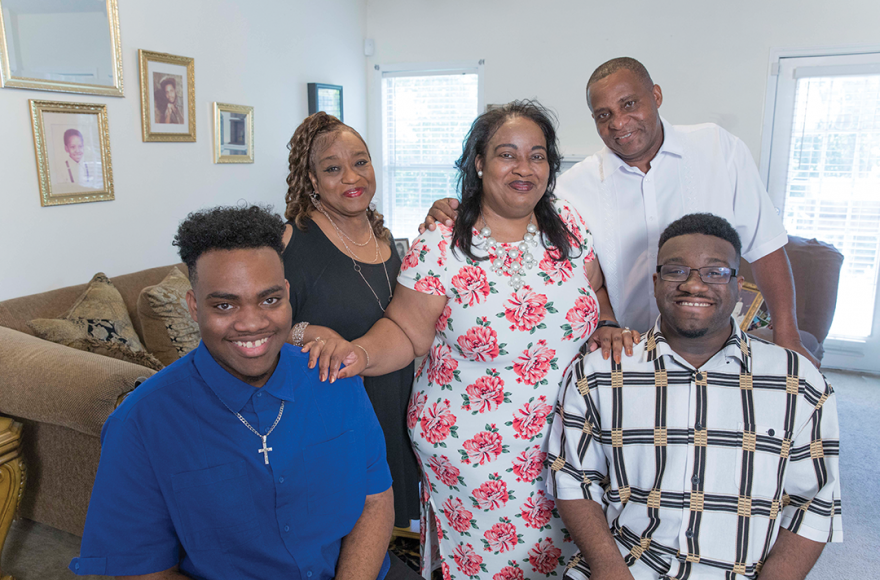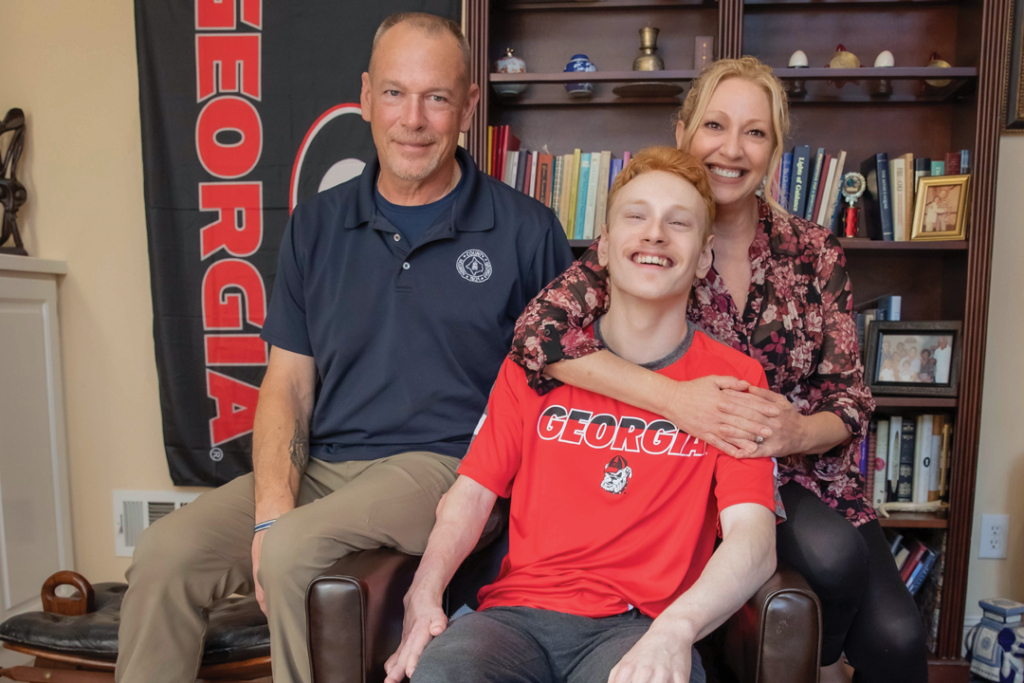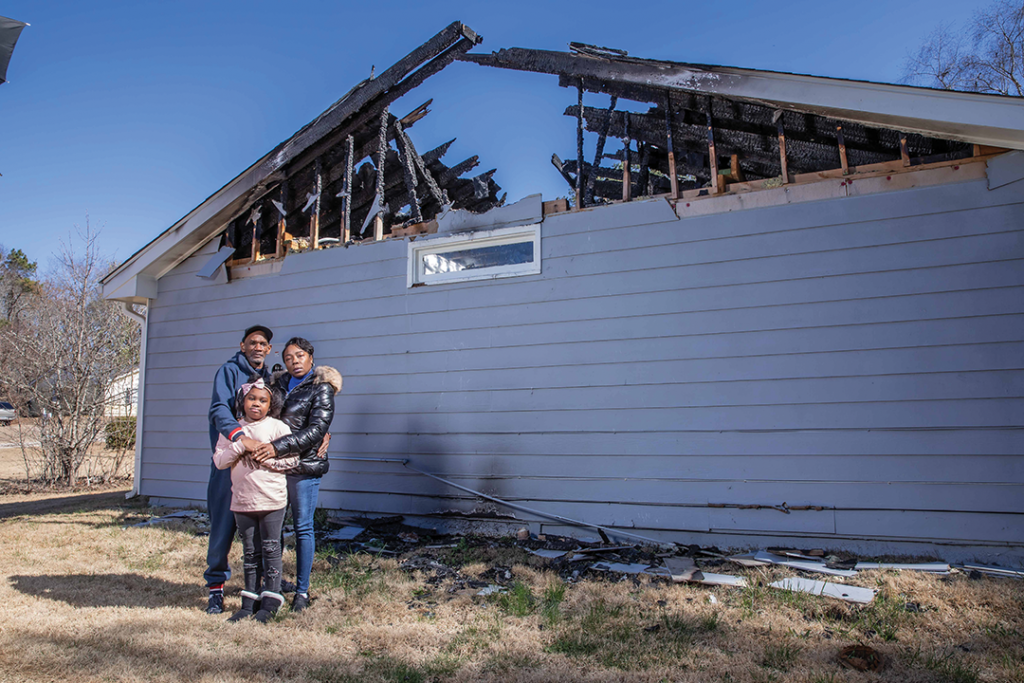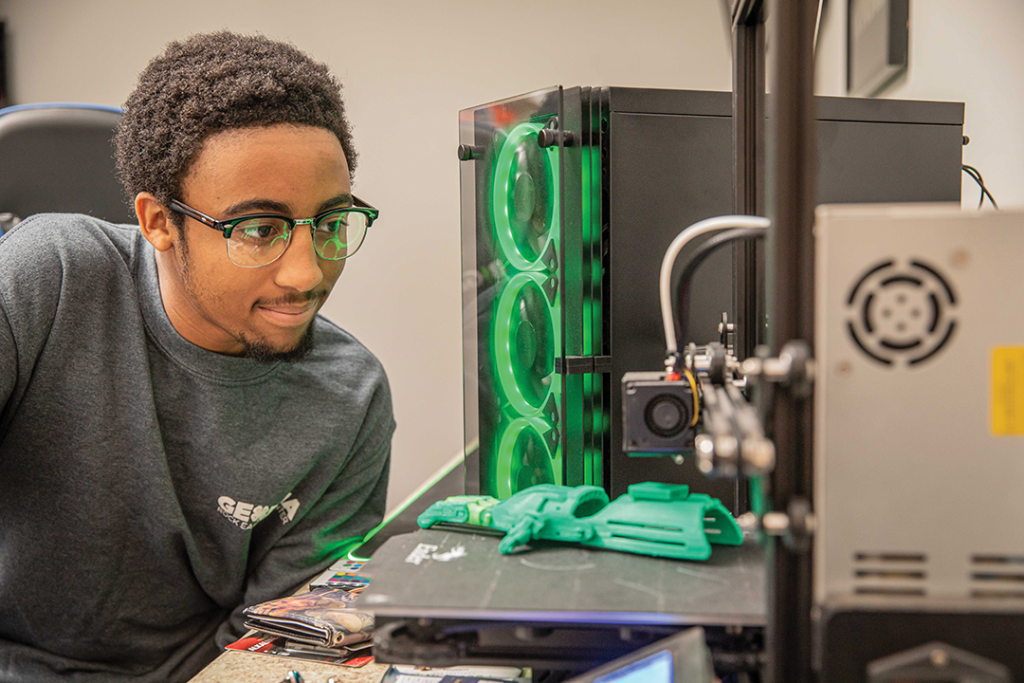As the mother of two autistic sons, Philroedna Thorpe found herself on a voyage of discovery for more than two decades.
Philroedna Thorpe does not need the Weather Channel to tell her when a storm is on the way. Her son knows. He has always known.
As a toddler, Noah Thorpe would clamp his hands over his ears and rock himself when his body detected the change in the air. One sunny afternoon, an elderly man noticed Noah’s behavior while the family shopped at Walmart. When Philroedna explained that a storm was coming, the man attempted to comfort Noah. “It’s OK, little buddy,” he said. “Look at the sun shining out there. You don’t have anything to worry about.” Within a few minutes, the light dimmed and the store was filled with the roar of a summertime downpour. Soon, Philroedna noticed the man walking toward her again. He apologized for doubting Noah’s behavior and marveled at what he had witnessed.
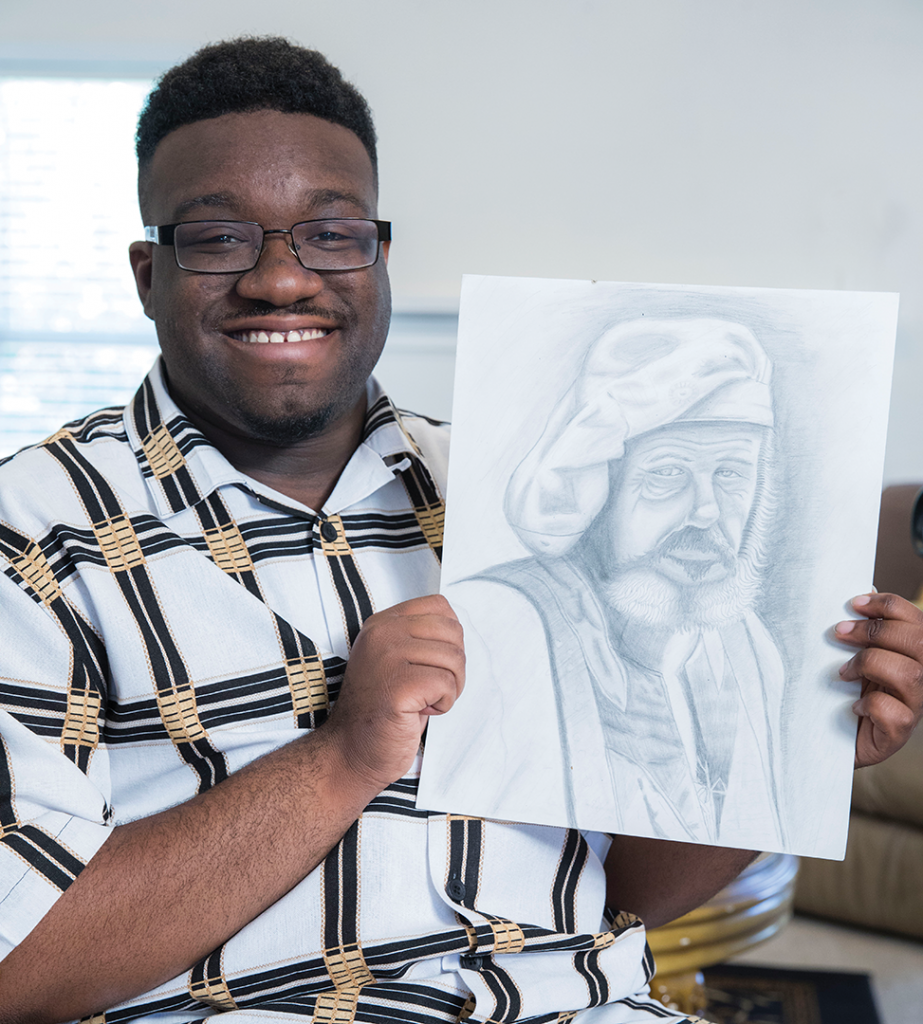
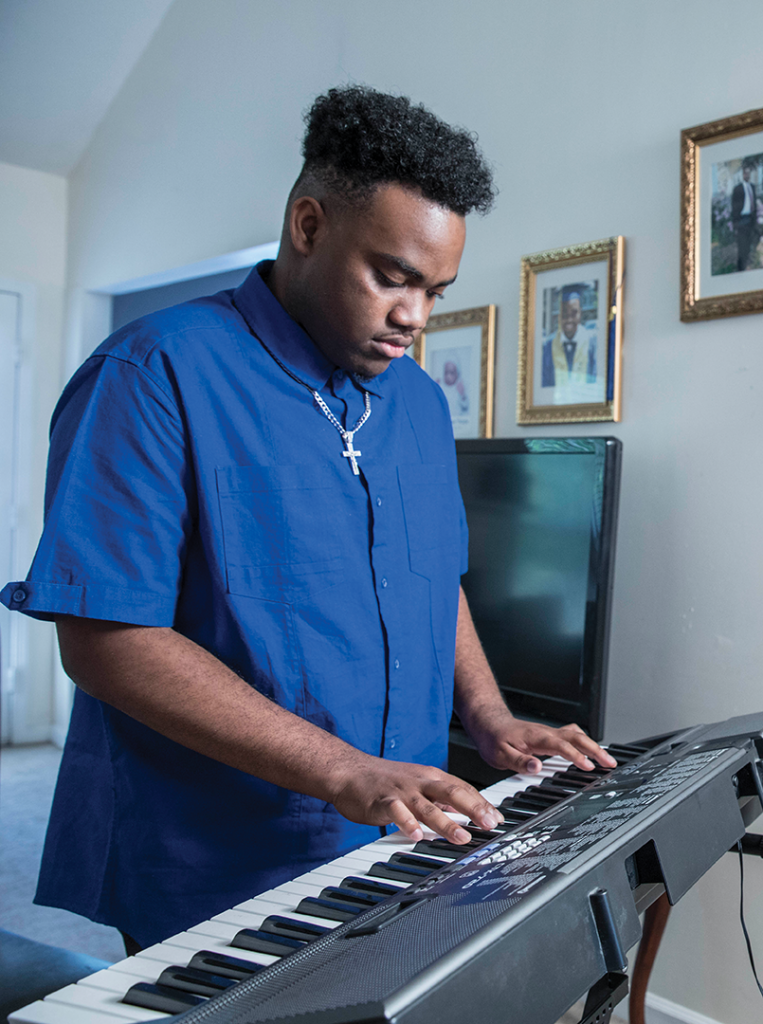
Now 22 years old, Noah’s storm-related anxiety manifests a little differently. His heart skips beats, and his palms sweat as he goes around the house closing all the blinds. Sometimes, he feels the storm hours before it arrives. Once it passes, he opens all the blinds and his anxiety fades.
Anxiety, attention issues and other complications affect those with Autism Spectrum Disorder, like Noah and his younger brother, Jason. According to the Centers for Disease Control and Prevention, one in 59 children has ASD. The disorder is about four times more common in boys than girls and it occurs in all racial, ethnic and socioeconomic groups. Some children are diagnosed before their second birthday. Such was the case with Noah. As a baby, he never answered to his name and often sat with his back toward his parents, spinning toys and lining them up instead of playing as other children might. Although he met many milestones on time, he began to regress. He was evaluated and diagnosed with ASD at 19 months old.
“The worst thing you can do as a parent is be in denial and not give a child the help he needs and deserves. Autism is actually a wonderful gift. You might have a walking genius in your house and not even know.”
Philroedna Thorpe
Because autism is a spectrum disorder, it affects people in different ways and with varying degrees of severity. However, each person with autism also has a distinct set of strengths and abilities that can reveal themselves in surprising ways. Philroedna and her husband, Winston, first witnessed Noah’s artistic gift when he was just 2 years old.
“He was pointing in his bedroom [and] saying ‘See?’ He had drawn buildings all over the wall and wrote his name in big letters. I didn’t even know he knew how to write his name,” Philroedna said. “We decided to just let him have that wall for a while.”
Noah continued to draw throughout his childhood and has always shown a strong ability to sketch images from memory. After high school, he began taking art classes with Glen Dyer at WildArt in Covington.
“Mr. Dyer started teaching him how to perfect his talent,” Philroedna said. “It took Noah a minute because he didn’t like anyone telling him what to do, but now he loves it.”
Creativity is often magnified in people with ASD, and neurological testing revealed off-the-charts right-brain activity in Jason and Noah. Jason’s creativity has manifested in the gift of music. Diagnosed with ASD at the age of 3, he also experienced speech delays and would cry often due to his inability to communicate verbally. He caught onto sign language quickly and used signing as his primary language during his early years. Jason’s struggles due to ASD include obsessive-compulsive behavior and insomnia. He cannot sleep unless he is listening to music on his earbuds. Now 19, Jason plays piano, sings at church and is a talented disc jockey. He frequently takes music lessons with Jairus Hardge at McKibben Music in downtown Covington. In addition, Jason shares his mother’s love of cooking and plans to pursue a degree in music or culinary arts.
The Thorpe brothers can be found volunteering with their mom at Newton County Senior Services every week at Turner Lake Park, where they recently won an award for their community service. Jason frequently provides DJ services for community events, such as Karaoke on The Square. The freedom to serve in the community and explore their creative gifts are two of the reasons the Thorpes chose to homeschool their sons. When offering advice to other parents of children with ASD, Philroedna encourages them to explore all educational and therapy options.
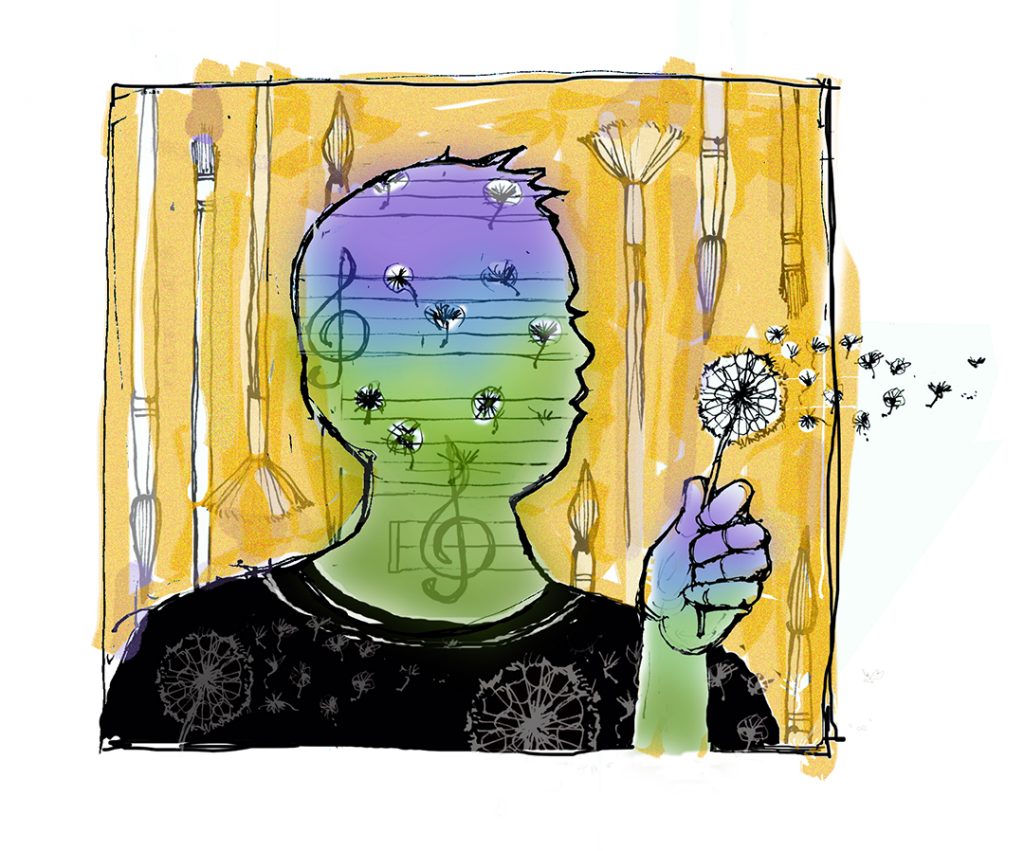
“We did speech, occupational and physical therapy programs when they were younger, but insurance wouldn’t cover [the] applied behavior therapy that’s often recommended for ASD. It’s hard on this side of town, because resources like life skills programs are usually on the north side of Atlanta,” she said, while pointing out that parents can provide help on their own. “Focus on the positive things they do; help them through the negative. Just be in tune with what is best for your family.”
Philroedna also recommends accepting assistance from friends and relatives.
“My mother, Phyllis Sowell, lives with us and has helped us with the boys since they were born,” she said. “I don’t know what I would’ve done without her support. You also have to remember that things that are important to society aren’t always important to people with autism, but that doesn’t define them as a person; it doesn’t make them or break them.”
For many families, processing an autism diagnosis can feel similar to the stages of grief: denial, anger, bargaining, depression and acceptance. Philroedna has gone beyond the stage of acceptance to one of celebration. She embraces the behaviors that make her boys unique and encourages other parents of autistic children to do the same.
“The worst thing you can do as a parent is be in denial and not give a child the help he needs and deserves,” she said. “Autism is actually a wonderful gift. You might have a walking genius in your house and not even know.”
For additional information on Autism Spectrum Disorder, including early signs, visit cdc.gov/ncbddd/autism/data.html or autismspeaks.org/what-autism.
Click here to read more stories by Kari Apted.

